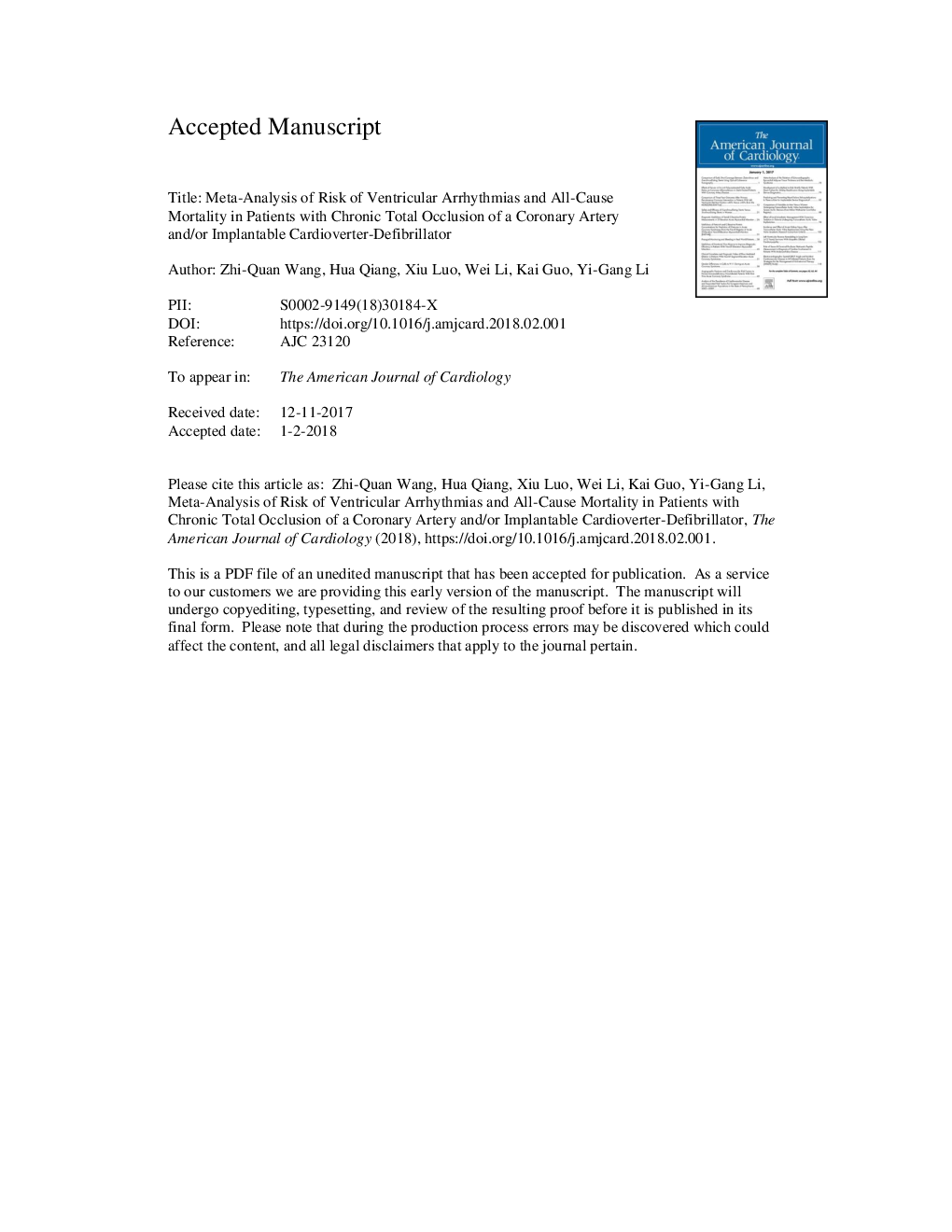| Article ID | Journal | Published Year | Pages | File Type |
|---|---|---|---|---|
| 8651277 | The American Journal of Cardiology | 2018 | 30 Pages |
Abstract
Implantable cardioverter-defibrillator (ICD) has been increasingly used to prevent sudden death in patients with high risk of ventricular arrhythmias (VAs). Chronic total occlusion (CTO) is a severe condition of coronary artery disease. However, the prognostic impact of CTO in ICD recipients remains controversial. We systematically searched the PubMed, EMBASE, and Cochrane databases for documents published before October 1, 2017 to identify studies that investigated the prognostic impact of CTO on VAs and all-cause mortality (ACM) in ICD recipients. The effect size was expressed by hazard ratio (HR) and 95% confidence interval (CI). Overall, 6 studies with 1,423 patients were included. We found that CTO independently predicted the occurrence of VAs in the global population (HR 1.77, 95% CI 1.14 to 2.76, pâ=â0.01). Subgroup analysis revealed that CTO only predicted VAs in patients receiving ICD as secondary prevention (HR 1.96, 95% CI 1.55 to 2.48, p <0.01). However, CTO was not associated with ACM in the global population (HR 1.51, 95% CI 0.99 to 2.32, pâ=â0.06). Further subgroup analysis still showed no association between CTO and ACM in patients receiving ICD as primary prevention (HR 1.49, 95% CI 0.43 to 5.21, pâ=â0.53) or secondary prevention (HR 1.56, 95% CI 0.87 to 2.78, pâ=â0.13). In conclusion, CTO is an independent predictor of VAs in patients with secondary-prevention ICD, but not for ACM. Our study provided additional evidence for improving the risk stratification and management of VAs in ICD recipients.
Related Topics
Health Sciences
Medicine and Dentistry
Cardiology and Cardiovascular Medicine
Authors
Zhi-Quan MD, Hua MD, Xiu MD, Wei MD, Kai MD, Yi-Gang MD,
